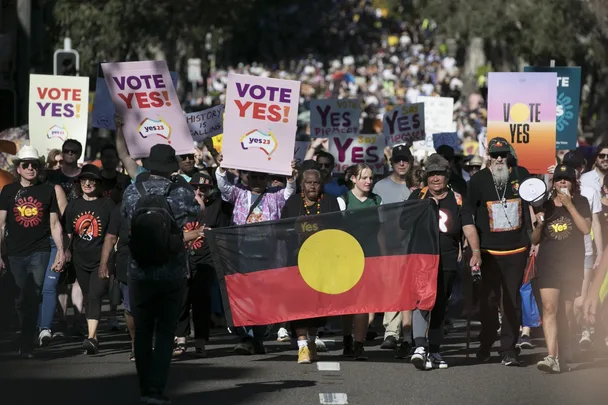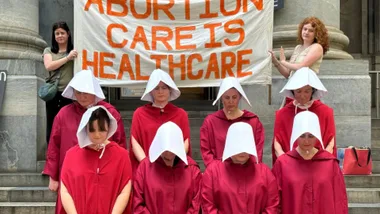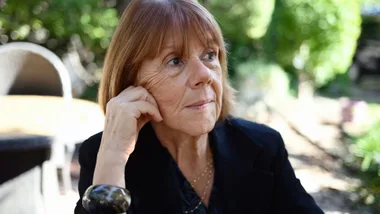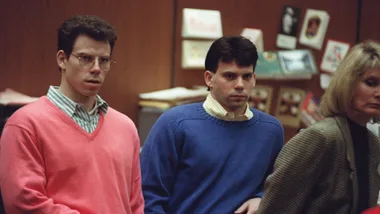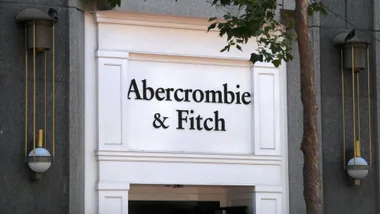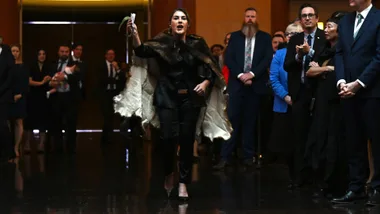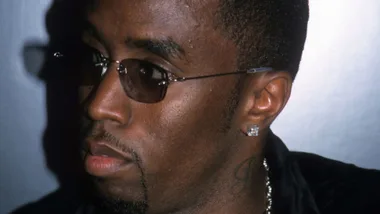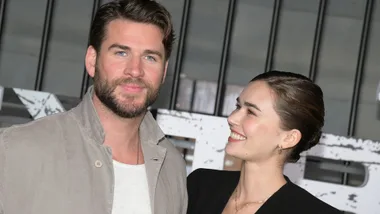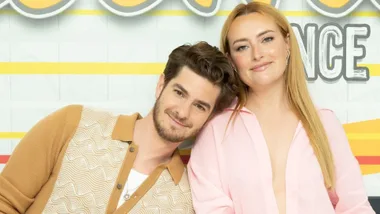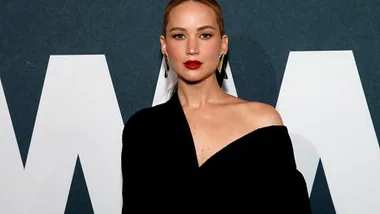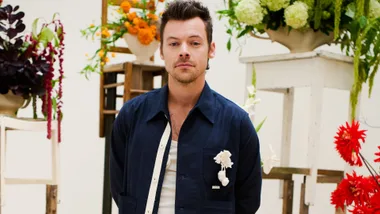When she was 12 years old, Megan Davis was handed the autobiography of controversial governor-general Sir John Kerr, igniting a lifelong fascination with the Australian Constitution.
One of five children raised by her single mother in a housing commission home in Brisbane, Davis – whose mother is white and whose father is Indigenous – has grown up wanting to give a voice to the voiceless. It drove her to become an international human-rights lawyer and the first Indigenous Australian woman to be elected to a United Nations body. It also drove her to help create 2017’s Uluru Statement from the Heart. And it drives her to push to establish a First Nations Voice enshrined in the Constitution.
“I’ve always been interested in the way that our constitutional system has set up a robust rule of law that has enabled many generations of Australians to flourish, but it hasn’t served our people well,” the Cobble Cobble and South Sea Islander woman tells marie claire. “I think that’s been part of the fascination: that in a country like Australia, which is quite extraordinary in its innovation and pioneering capacity, in all of this glorious achievement of Australia, the one issue we seem to fail to be able to come at is the recognition of First Nations peoples.”
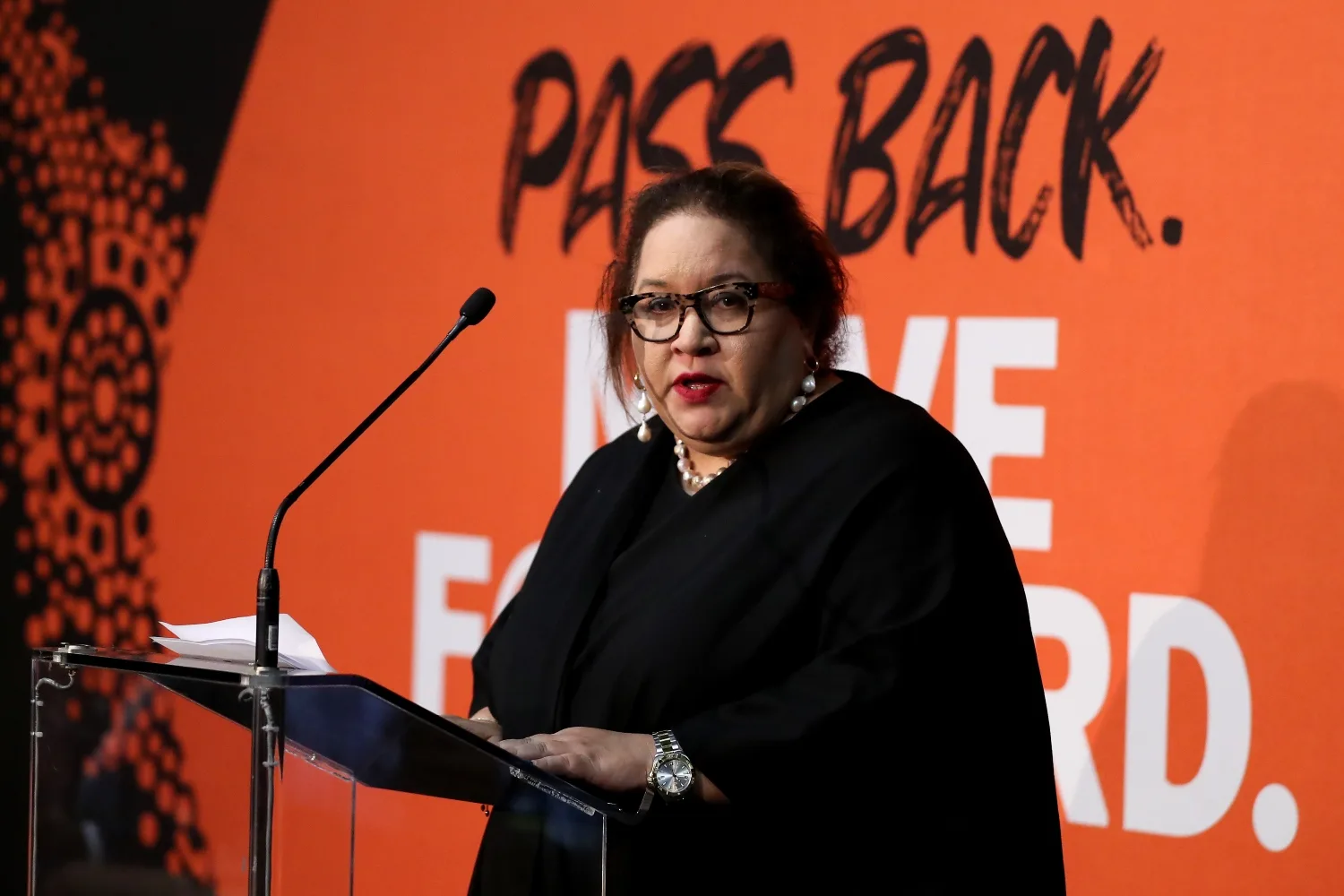
The Voice will give First Nations peoples a constitutional right to have their say on laws and policies that impact them and their communities via a representative committee. Here, Davis reveals in her own words why Australian people will create history in the upcoming referendum.
Professor Megan Davis On Why The Voice Is So Important
“It’s been a long journey to get here – almost 6.5 years since the Uluru Statement from the Heart. We’ve spoken to hundreds of thousands of Australians about this and we’ll have spoken to millions more by the end. We’re out there on the ground a lot, talking to Australians face-to-face. We’re not seeing a big movement for the No vote; we’re seeing a massive movement for Yes. That makes me feel really proud. If the No vote succeeds, it will be devastating for a lot of First Nations people.
“They would feel a very acute sense of rejection by the nation. But I also don’t think we will lose. I have always believed very much in the goodwill of the Australian people. And so have our old people who made that decision to issue the Uluru Statement to the Australian people. From day one, I’ve never thought we’d lose. And that’s the only way you can do this kind of work. Because the alternative is just too difficult to even contemplate.
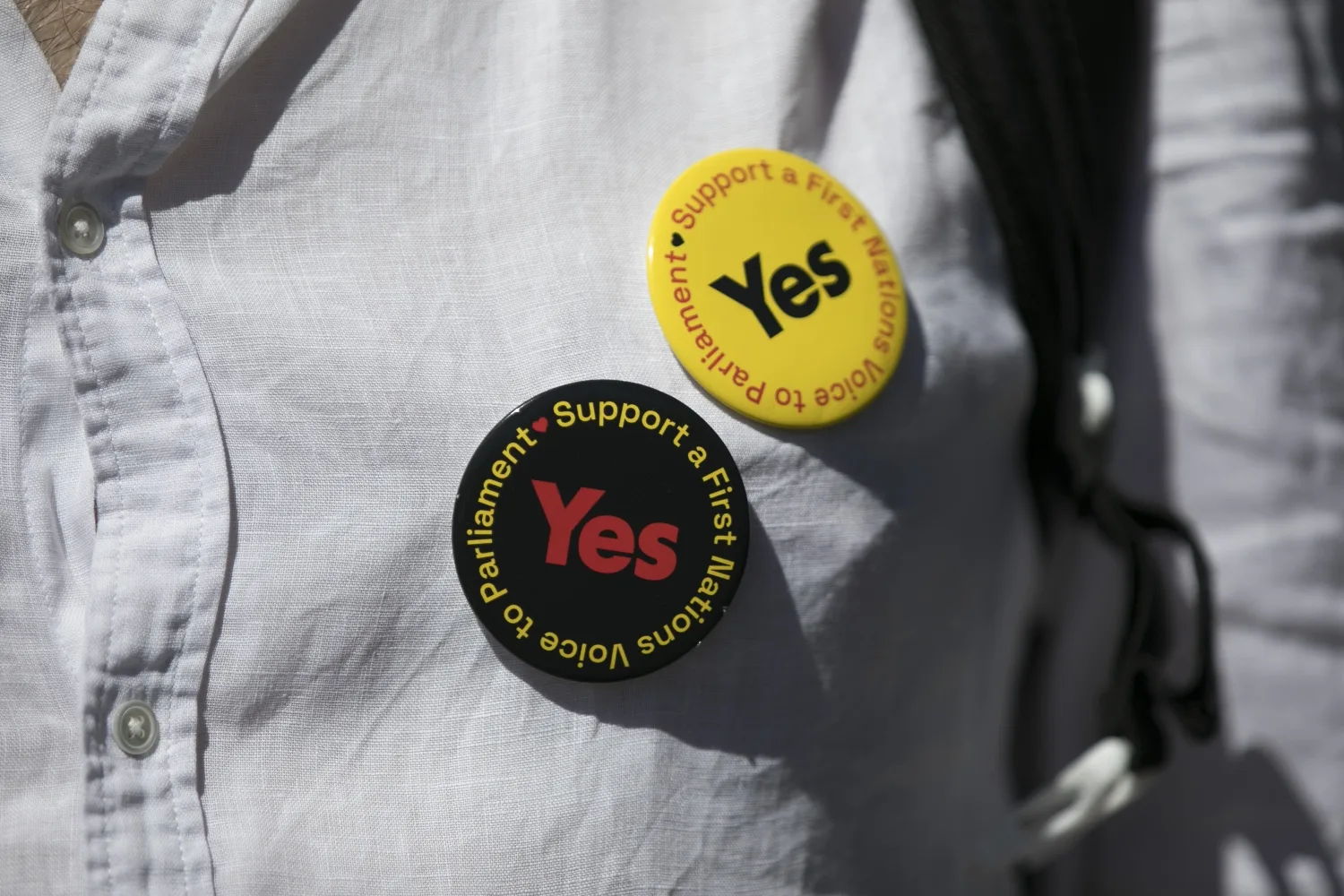
“A big part of the voicelessness that many First Nations people feel in remote and regional communities is because the people who speak on their behalf are in Canberra and by and large have no relationship or connection to those regional and remote communities. And so, when we did the Uluru process, a big part of it was about people from remote and regional communities, and conceiving ways [in which the problem] can be addressed.
“The hardest part of working on this campaign has been the misinformation and disinformation. Australians laughed at the United States in the Trumpian era, but those misinformation techniques and the companies that fostered them are now influencing our electoral integrity. I wasn’t expecting that to be a problem in relation to the referendum.
“There’s been particular focus by the No campaign on the denigration of Aboriginal women and the work they’re doing. For example, I’m an Aboriginal person who grew up in the underclass, who studied hard to become a professor. And their standard narrative is that we are wealthy elites who are just going to lead to more elites under the Voice. That kind of stuff is really difficult to hear, especially if you grew up dirt-poor. It’s simply not true. And they have taken things – like when I’ve worn a Fendi cape – and prosecuted the argument that I’m an elitist.
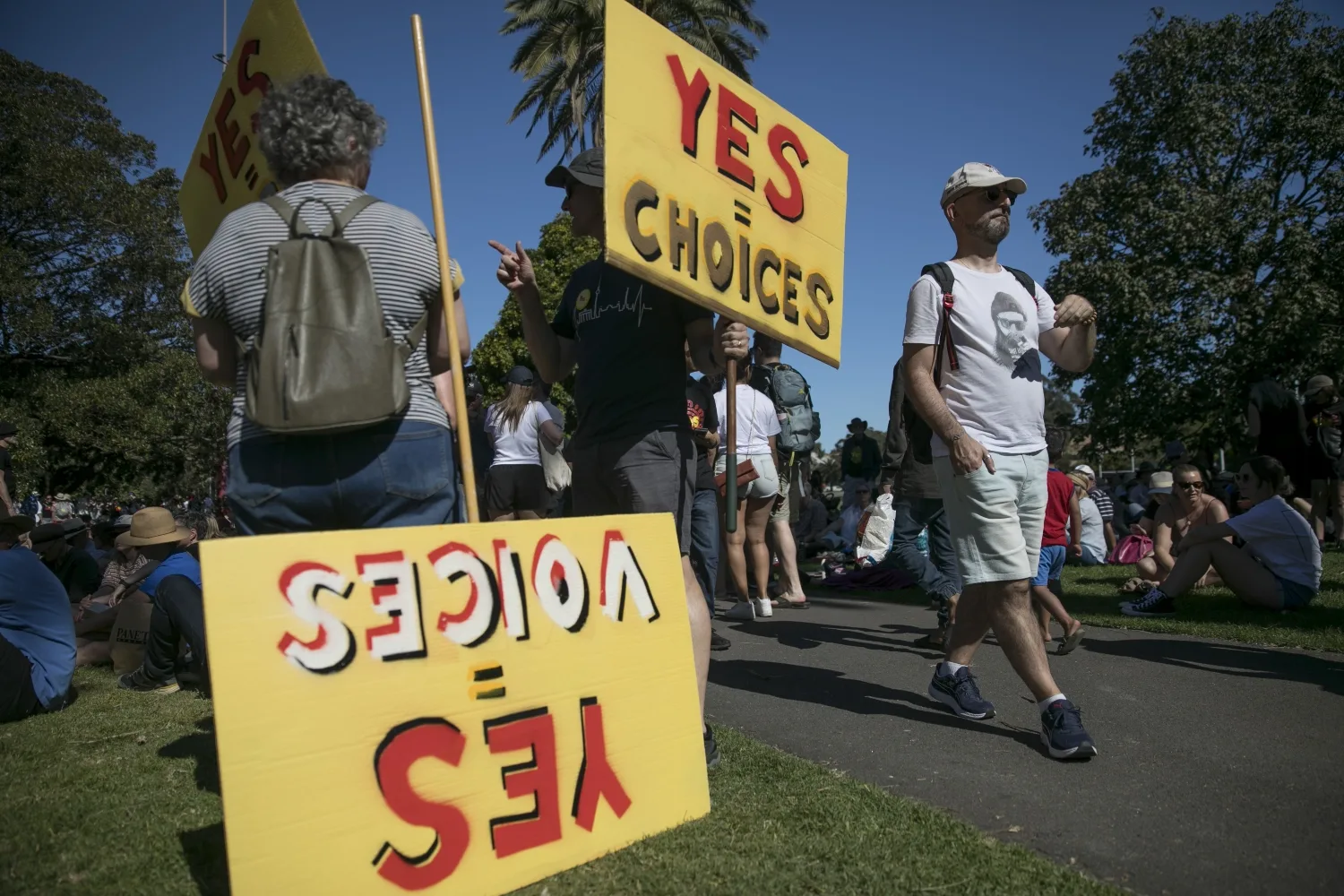
“They said Minister for Indigenous Australians Linda Burney wore Gucci when she went out to a remote community. So there’s not just the denigrating of women but the suggestion that Aboriginal women who do succeed in particular professions aren’t entitled to buy certain brands of clothes. It’s an extraordinary double standard, particularly when it’s coming from the wealthy right-wing elite.
“But it has been the honour of my life to work on this. There’s no greater, more rewarding work that I’ll ever do. The other rewarding part of it is Aussies. I’ve got people – old ladies, men, all of them – stopping me and saying, ‘Well done, keep going, we’re behind you.’ Not all Australians have met an Aboriginal person, so it’s an extraordinary opportunity to come face-to-face.
“And as they accept the invitation issued to them in the Uluru Statement from the Heart, Australians are doing incredible things, even if it’s just holding up signs at a roundabout. It’s a tidal wave of humanity stepping up and saying, ‘This is the right thing to do.’”
